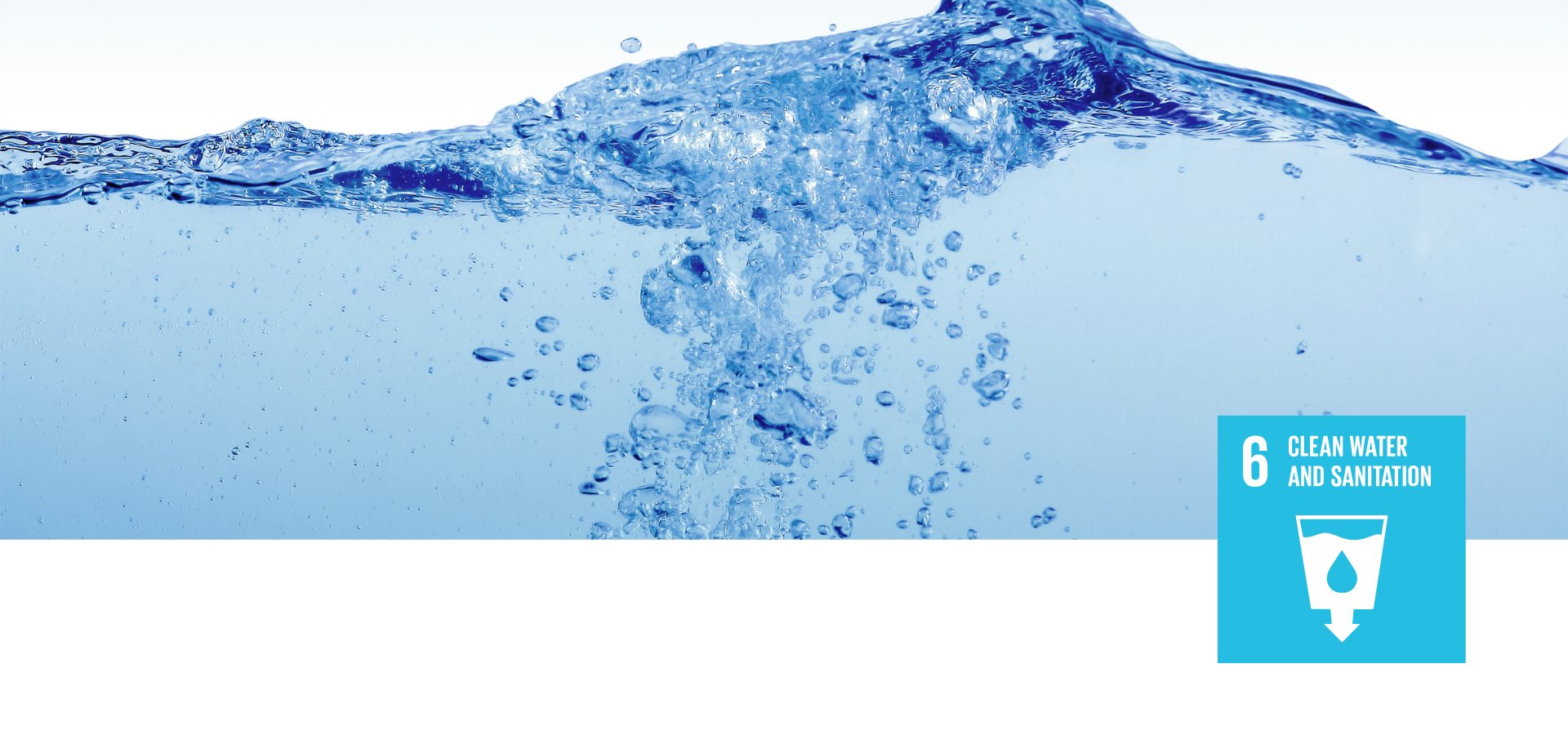
SDG 6: Clean Water and Sanitation
Through interdisciplinary research, education, and innovative initiatives, HKUST actively addresses water challenges and promotes responsible water usage. We include a comprehensive curriculum and encourage extensive research on water technology and resource management. We also implement sustainable practices on campus, prioritize the provision of clean drinking water, and launched various water conservation initiatives.
Curriculum
68 related courses were offered in the 2022-23 academic year.
Research
According to Science Direct, from 2019 to 2023, HKUST published 414 research papers addressing SDG 6.
About 46% of them are in the top 10% cite score and nearly 72% are internationally co-authored.
Research Highlights
Publication
Under the Undergraduate Research Opportunities Program, the lead contamination in high-rise building water supply systems project Investigated the complex interactions causing lead concentration in Hong Kong's water networks. By combining experiments, modelling, and material examination, the university aims to mitigate lead contamination and ensure safe drinking water, while fostering responsible water usage and sustainable consumption.
Smart Water Network Living Lab Project
The Sustainable Smart Campus as a Living Lab (SSC) project "Smart Water Network" develops a remote and automated monitoring system to control the urban water supply system to combat the aging and weakened pipes, and ensure a secure water supply for HKUST and all of Hong Kong.
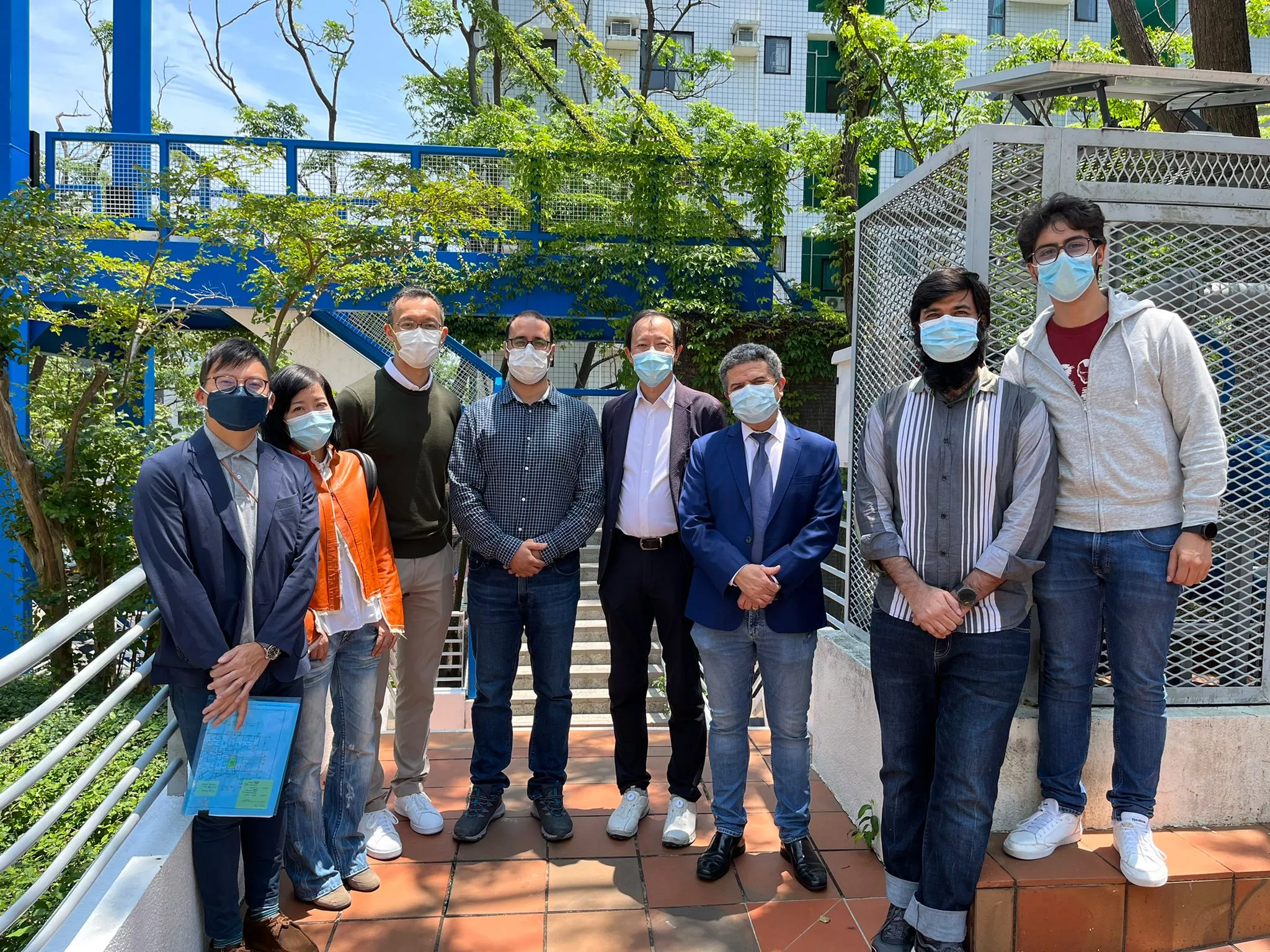
Urban Spring Smart Hub Living Lab Project
Through the Sustainable Smart Campus as a Living Lab (SSC) initiative, the Urban Spring Smart Hub project was developed to enhance drinking water facility management and raise water quality awareness by integrating with 50 water dispensers. By collecting data for efficient management and displaying information on saved bottles and water consumption through public dashboards, the Smart Hub encourages environmental consciousness.
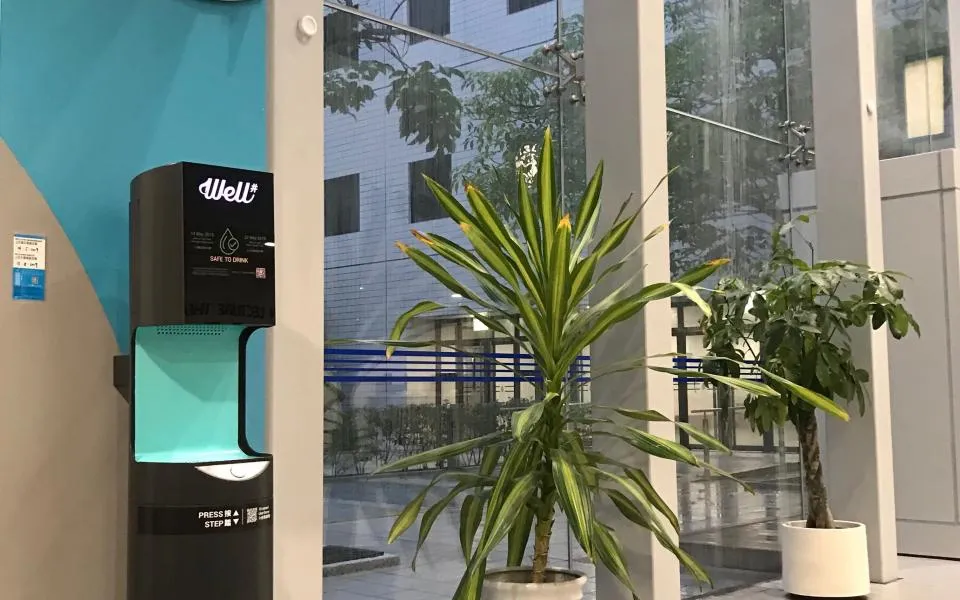
Policy
Building Standards to Minimize Water Use
HKUST High Performance Building Standards & Guidelines prioritize water conservation and sustainability. Guidelines include using efficient toilets, avoiding potable water for landscaping, and repurposing condensate water from air conditioning systems for irrigation or other uses, promoting water efficiency and environmental responsibility.
Prevention of Water Contamination
HKUST has strict regulations on the disposal of hazardous materials and liquid effluent. The Disposal of Hazardous Materials and Items under Regulatory Control stated our strict regulations for the disposal of hazardous materials such as chemical, radioactive, and biological wastes. In terms of Liquid Effluent, HKUST follows environmental standards set by the Environmental Protection Department, conducts regular monitoring and analysis, and prohibits the disposal of hazardous materials into the sewer system. These Guidelines aims to protect water resources and the environment, and prevent contaminations from entering water bodies, safeguarding water quality, ensuring access to clean water and sanitation for everyone.
Community Engagement
HKUST Water Resources Lab Visit
The HKUST Water Resources Lab Visit, co-organized by the "Academy for Bright Future Young Engineers" and the Department of Civil and Environmental Engineering, offered an opportunity to explore two key aspects. Participants visited the water lab to learn about the innovative use of waves to conserve water and energy. Additionally, they visited the Smart Water Network project on campus, where waves have led to the development of novel technology.
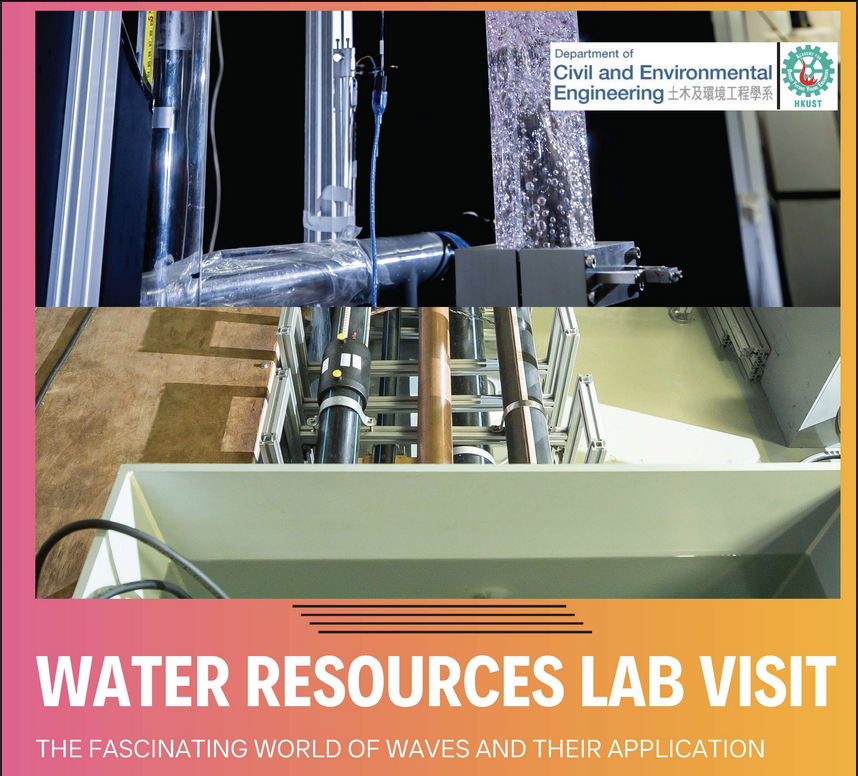
Event poster for the HKUST Water Recourses Lab Visit, organized by the Department of Civil and Environmental Engineering
Smart Showerhead Program
HKUST, as the project management office of the Jockey Club Sustainable Campus Consumer Program (JCSCCP), launched the Water-Saving Smart Showerhead Program in eight universities with the aim to reduce per capita water consumption by 5%. The showerheads have an integrated water-powered LED light that changes color based on water usage. With a design that cuts water consumption by 26%, the showerheads promote responsible water consumption. A real-time water consumption dashboard will be implemented to raise awareness and encourage student engagement, including challenges and rewards for water-saving halls.
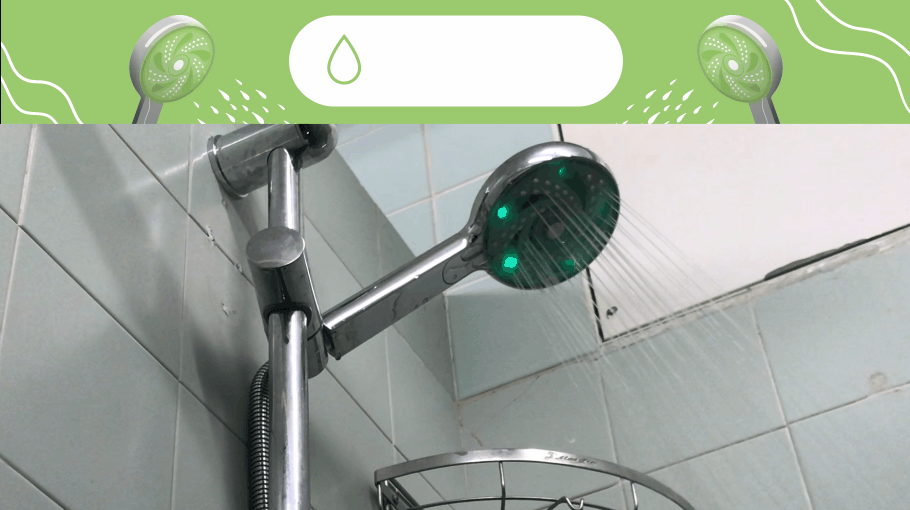
Cutting water consumption to as little as 6.6L per minute, the showerheads’design is extremely water-efficient. The quoted figure is roughly 26% less than conventional shower units rated Grade 1 by the Hong Kong Water Supplies Department's Water Efficiency Labelling Scheme.
Water Facilities
Free Drinking Water for Students, Staff and Visitors
HKUST takes pride in its clean and safe drinking water supply, backed by government monitoring and adherence to international guidelines. With over 150 water fountains equipped with filters and UV disinfection systems across the campus, the university ensures the best quality water for its community. HKUST conducts regular monitoring and testing, maintenance and upgrading of the fountains.
Water Conservation Initiative
As part of the university's ongoing water conservation efforts, a Water Conservation Initiative has been implemented in the student dormitories. The initiative has piloted the installation of smart showerheads in two residence halls, covering a total of 87 showerheads that are accessible to 1,034 students. Early results have shown up to a 45% reduction in water use in these dorms. Building on this success, the university aims to retrofit all showerheads across campus with these water-efficient models. By proactively addressing water consumption in student living spaces, the university sets an example of conscious resource usage and empowers the campus community to adopt sustainable habits.
Global Gradate Tower Rainwater Reuse
The Global Graduate Tower (GGT) on campus has implemented a successful rainwater harvesting system that demonstrates the university's commitment to sustainable water practices. The system collects air conditioning condensate and rainwater, storing it in a 37 cubic meter fiberglass tank. After passing through a filtration and UV sterilization process, the harvested water is used to irrigate 950 square meters of landscaping. This initiative saves an impressive 1,200 liters of potable water consumption per year, promoting more conscious water usage across the campus community. By showcasing innovative water conservation efforts like the GGT Rainwater Reuse project, the university encourages students, faculty, and staff to adopt eco-friendly behaviors and help preserve this vital natural resource.
District Cooling System
HKUST has upgraded our central chiller plant into a district cooling system which resulted in significant cost and energy savings. By adopting seawater-cooled central chiller and expanding the capacity of the plant, HKUST increased efficiency and reduced our carbon footprint. The upgrade saved annual energy consumption, reduced operation costs, and reused waste heat, aligning with HKUST's commitment to sustainability and its goal of reducing energy consumption by 15% by 2028.
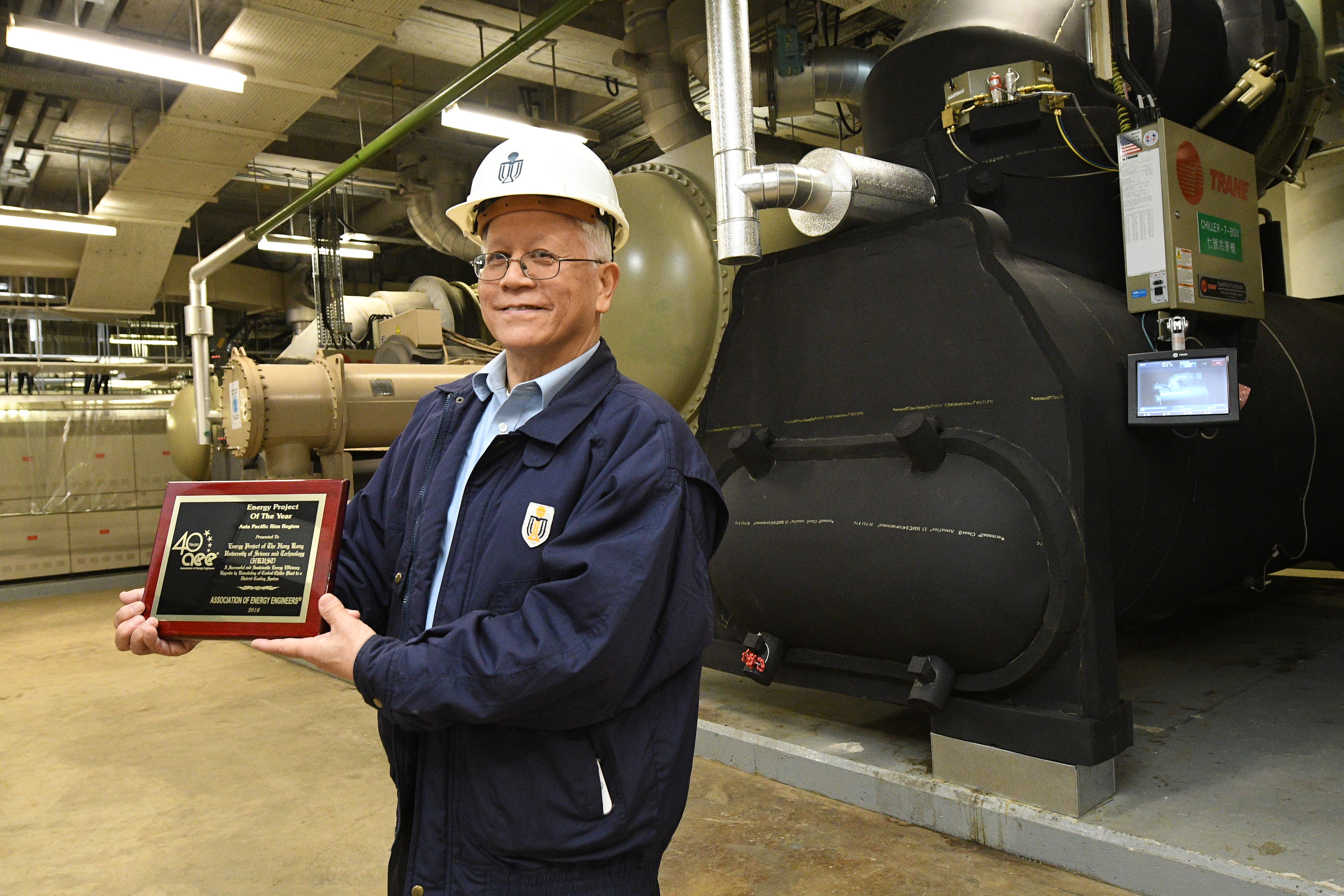
Mr Lam Kin-lai, Associate Director of HKUST’s Facilities Management Office, presents the award in front of a new chiller.
Recording and Processing Water Data
In 2022-23, our total water consumption was 507,161m3, annual cooling tower bleed-off reuse amounted to 16,366m3, and in 2022, it was 8,724m3. We also incorporate rainwater for irrigation and flushing. These efforts to track our water consumption and water reused, which help promote responsible water usage, optimize resource allocation, drive behavioral change, and inform decision-making, ensuring clean water and sanitation for all while promoting sustainable water practices.
HKUST Institute for the Environment
The Institute for the Environment (IENV) at HKUST focuses on water technology and resource management to address pressing issues related to water resources in Hong Kong, the Pearl River Delta region, and Mainland China. IENV conducts interdisciplinary research to develop innovative solutions in areas like water and wastewater treatment technology, urban water resource management, micro-pollutant control, and the effects of rainwater and flooding on natural environments. The institute aims to contribute to sustainable development by advancing water technology and sound resource management practices. The research conducted by IENV has the potential for significant local and global impact in addressing water-related environmental challenges.